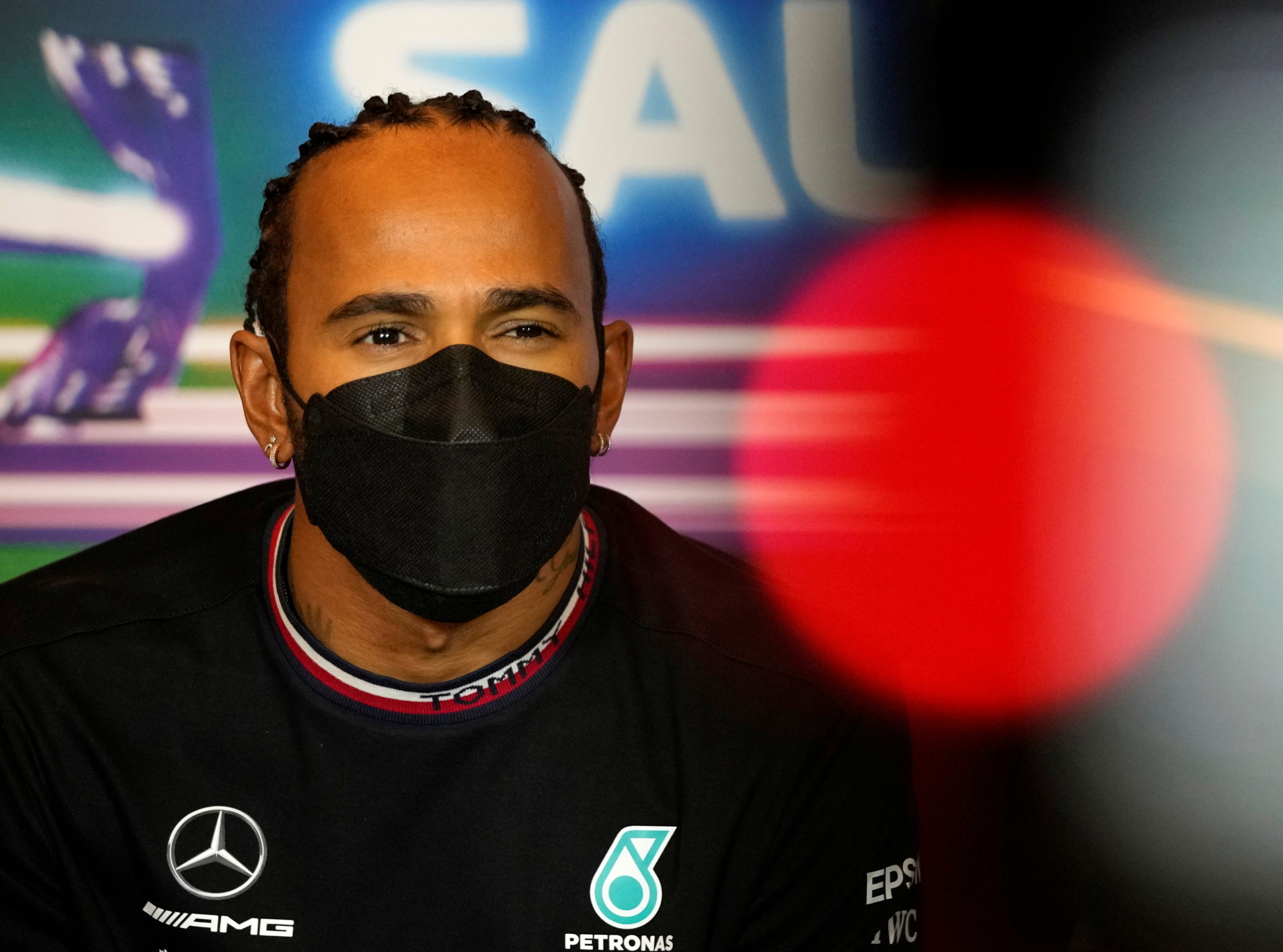Hamilton speaks out on human rights ahead of Saudi F1 debut

Formula One F1- Saudi Arabian Grand Prix – Jeddah Corniche Circuit, Jeddah, Saudi Arabia – December 2, 2021 Mercedes’ Lewis Hamilton during the press conference Hassan Ammar/Pool via REUTERS
Seven-time Formula One world champion Lewis Hamilton expressed concern about human rights in Saudi Arabia on Thursday and indicated he did not feel comfortable about having to race in the kingdom.
Saudi Arabia is hosting a grand prix for the first time this weekend, a night race around a street circuit in Jeddah, with rights groups accusing the country of using the event to deflect scrutiny from abuses.
Hamilton, the sport’s most successful driver, said he had received a warm welcome on arrival but felt “duty-bound” to speak out.
The Briton, who has used his platform to campaign for diversity and equality, said the Liberty Media-owned sport needed to do more.
He wore a Progress Pride helmet at last month’s Qatar Grand Prix to draw attention to LGBTQ+ intolerance, and will wear it again this weekend in Saudi, where gay sex is also a criminal offense.
“Do I feel comfortable here? I wouldn’t say that I do,” said the Mercedes driver. “But it’s not my choice to be here. The sport has taken the choice to be here.”
Hamilton said the law relating to the LGBTQ+ community was “pretty terrifying.”
“There’s changes that need to be made. For example women’s rights of being able to drive (legally) in 2018, it’s how they are policed. Some of the women are still in prison from driving many, many years ago.
“So there’s a lot of changes that need to happen and I think our sport needs to do more.”
Formula One boss Stefano Domenicali has argued that sport can help bring change, even if it will take time for that to happen.
“As soon as these countries choose to be under the spotlight Formula One is bringing, there is no excuse. They have taken the route of a change,” the Italian told Sky Sports television recently.
Formula One launched a “We Race As One” campaign last year to help highlight and tackle issues such as racism and inequality.
Four-times world champion Sebastian Vettel said it was clear “some things are not going the way they should” but change took time and he preferred to highlight positive examples of progress.
“For sure there are shortcomings and they have to be addressed but I still feel the more powerful tool is the positive weapon,” he said.